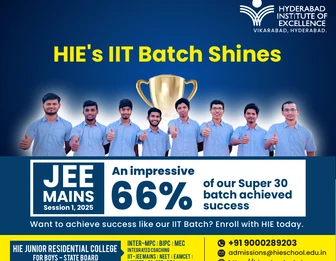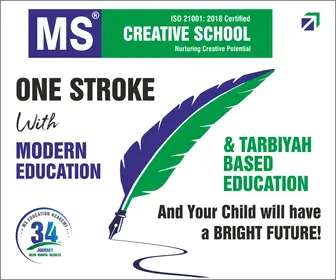
Hyderabad: Injustice thrives when people choose silence over action. Injustice anywhere is a threat to justice. This was the resounding message at a meeting organized the other day by the Association for Protection of Civil Rights (APCR) at the Nehru Auditorium, Madina Education Center.
The programme, convened by APCR under the theme “Making Sense of Justice in a Changing Democracy,” served as a stark reminder that justice is not just the responsibility of the victims but of every citizen who believes in democratic values. Anees Ahmed, an executive member of APCR conducted the proceedings.
A large number of concerned citizens gathered to express solidarity with victims of oppression and call for collective action against human rights violations.
Nadeem Khan, APCR’s national secretary, strongly criticized the public’s passive attitude towards injustice. He pointed out that people often react to human rights violations with sympathy but rarely take action. “That’s terrible” is all they say, but victims need more than words, they need support. He emphasized that standing with victims is the least one can do, making them feel they are not alone in their struggle.
Mr. Khan shed light on numerous injustices, including thousands of undertrial prisoners languishing in jails without formal charges. He also spoke about how activists advocating for human rights are being labeled as “urban Naxalites,” and NGOs, once seen as protectors of marginalized communities, are now viewed with suspicion. Among the worst victims of human rights violations, he noted, are Muslims, Dalits, and Tribals. Citing data from his home State of Uttar Pradesh, Khan said last year 31,677 rape cases were reported, 80 per day, while over 12,800 police encounters took place since 2017 under the Yogi government. The situation was so pathetic that even filing an FIR has become a struggle for victims. Of late Bengali-speaking Indian Muslims are being targeted in the name of identifying them as Bangladeshi infiltrators, leaving poor daily wage workers in distress.
If Muslims in Hyderabad are sitting in their comfort zone, they should thank God and stand by their less fortunate brothers elsewhere. They could at least visit their homes and assure the families that they are not alone in this struggle. Quoting a popular Hadith, he reminded the audience that the Muslim community should function as a single body – if one part suffers the whole should feel the pain. Only through collective action can justice prevail.
Mockery of democracy
Siasat News Editor and MLC, Amer Ali Khan, expressed deep concern over the state of democracy in India. Under the BJP government, hate crimes against minorities have risen by 76 percent, with Dalits and Muslims bearing the brunt of the violence. He lamented that despite facing severe atrocities, Muslims have been hesitant to fight for their rights. Instead, it is often non-Muslims who are stepping forward to champion their cause. This, he stressed, needs to change.
Quoting an example of justice from Islamic history, Amer Ali narrated the story of Prophet Suleman (AS) resolving a dispute between two women claiming the same child. By proposing to cut the baby in half, he cleverly identified the real mother – the one who pleaded for the child’s life rather than insisting on her share. This, he suggested, should serve as an example of how justice should be upheld in society.
He also emphasized the need for economic empowerment within the Muslim community, suggesting that every Muslim should invest in a life insurance policy of at least ₹5 lakh. This, he argued, would act as a deterrent against mob lynching, as it would make the government financially accountable for victims’ deaths. Drawing lessons from history, he noted that the Babri Masjid demolition in 1992 spurred Muslims to focus on education, while the 2002 Gujarat riots led to increased networking within the community. Now, he said, it was time for Muslims to arm themselves with knowledge to counter the widespread misinformation against them.
Crisis of democratic institutions
Advocate V. Raghunath highlighted the systematic erosion of democratic institutions in India. The judiciary, legislature, and bureaucracy, he said, were all under crisis. Rights that were won through long struggles during the freedom movement are now being curtailed or completely rolled back. Civil rights defenders, who should be celebrated for their work, are instead being booked under draconian laws.
He pointed out that the Supreme Court had once upheld that “bail is the rule and jail is the exception,” but today, the reverse is true. Many underprivileged and marginalized individuals are languishing in jails for years without trial, while those in power manipulate the system to evade justice. The cost of seeking justice has become prohibitively high, making it almost impossible for the poor to fight legal battles. Therefore, he called for redefining democracy and reinforcing constitutional values to ensure justice remains accessible to all.
Call for collective action
Other speakers, including Prof. Gali Vinod Kumar, and activists Ravi Kanneganti and Jasveen Jairath, echoed similar concerns. They emphasized that without collective resistance, democracy would continue to be diluted, and human rights violations would persist unchecked. The meeting underscored the need for unity across communities in challenging repressive laws and upholding the principles of justice and equality.
Anees Ahmed, executive member of APCR, said democracy is not just about elections. It also involves ensuring liberty and equality. In its 18 years of existence, APCR has fought 19,000 cases and ensured the release of 300 prisoners.
The speakers clarified that injustice will not stop unless it is actively challenged. Whether it is police excesses, communal violence, or economic marginalization, these issues require collective action, not passive spectatorship. They urged the people to move beyond sympathy and take concrete steps to support victims of injustice.




